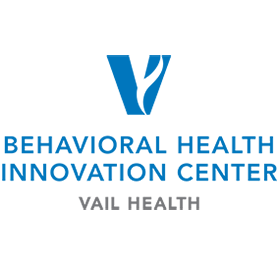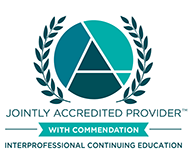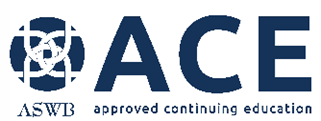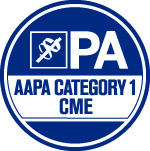
Novel Approaches to Behavioral Health Innovation: Healing - Our Path from Mental Illness to Mental Health- Enduring

The last four decades have seen unprecedented progress in the science of mental illness, yet we have seen little progress in outcomes for people with serious mental illness. At a population level, morbidity and mortality are increasing not decreasing for those with schizophrenia, bipolar disorder, and severe mood and anxiety disorders. How to explain this gap between science and social impact? This lecture will suggest we have a crisis of care, with five major problems contributing (capacity, engagement, quality, accountability, and equity). Remarkably, while there is no magic bullet (or molecular target), there are solutions for each of these problems. Technology will help. But we need high touch as well as high tech. Most of all, we need to shift our model from a narrow medical “sick care” approach to a broader recovery “health care” approach, addressing the 3 P’s: people, place, and purpose. The problem of serious mental illness is indeed medical, but the solutions will need to include social, environmental, and political efforts if we are to bend the curves for morbidity and mortality.
This educational activity is designed to change learner competence and focuses on the following competency areas:
- The American Board of Medical Specialties: Patient care and procedural skills, Medical knowledge
- Nursing: Employ evidence-based practice
- Center for the Advancement or Pharmacy Education: Health and wellness, Interprofessional collaboration, Learner, Patient-centered care
- Pharmacy Technician Certification Board: Pharmacology
- Interprofessional Education Collaborative: Interprofessional Communication
- Diversity, Equity, and Inclusion: Engage in self-reflection, Value diversity in the clinical encounter
Intended Audience
This activity is designed for Psychologists, Pharmacists and Pharmacy Technicians, Physicians, Nurses, Physician Assistants, Social Workers, and other behavioral health clinicians.
Learning Objectives
As a result of participation in this educational series, members of the healthcare team will be able to:
- Illustrate that progress in research has not translated to progress in outcomes for people with serious mental illness (SMI).
- Identify the reasons for lack of progress in outcomes for people with SMI.
- Define the critical elements (the three P’s) of recovery.
- Explain that health is about more than healthcare.
Tom lnsel, M.D., a psychiatrist and neuroscientist, has been a national leader in mental health research, policy, and technology. From 2002-2015, Dr. Insel served as Director of the National Institute of Mental Health (NIMH). More recently, he led the Mental Health Team at Verily (2015-2017); co-founded Mindstrong Health (2017-2019), a start-up building tools for people with serious mental illness; and served as a special advisor to California Governor Gavin Newsom (2019), helping on behavioral health issues. In 2020, he co-founded Humanest Care, a therapeutic online community for recovery. In 2022, he joined Vanna Health as a co-founder and executive chair. Vanna Health is a start-up helping people with serious mental illness engage in psychosocial supportive care. He currently serves on the boards of Fountain House and the Steinberg Institute (Chair, 2019-2022) as well as being an advisor to several mental health start-ups (including Alto Neuroscience, Cerebral, Compass Pathways, Owl Insights, Koa Health, Valera Health, and Ellipsis Health). He is the author of Healing: Our Path from Mental Illness to Mental Health (Penguin Random House, 2022). Dr. Insel is a member of the National Academy of Medicine and has received numerous national and international awards including honorary degrees in the U.S. and Europe. More info at www.thomasinselmd.com.
Policy on Faculty and Sponsor Disclosure
It is the policy of the University of Wisconsin–Madison Interprofessional Continuing Education Partnership (ICEP) to identify, mitigate and disclose all relevant financial relationships with ineligible companies* held by the speakers/presenters, authors, planners, and other persons who may influence the content of this accredited continuing education (CE). In addition, speakers, presenters and authors must disclose any planned discussion of unlabeled/unapproved uses of drugs or devices during their presentation. For this accredited continuing education activity all relevant financial relationships have been mitigated and detailed disclosures are listed below.
*Ineligible companies are those whose primary business is producing, marketing, selling, re-selling, or distributing healthcare products used by, or on, patients. The ACCME does not consider providers of clinical services directly to patients to be ineligible companies.
Name | Role | Financial Relationship Disclosures | Discussion of Unlabeled/Unapproved uses of drugs/devices in presentation? |
Thomas Insel, MD | Speaker | Karuna Therapeutics (Stock), | No |
| Casey Wolfington, PhD | Clinical Director/ Planning Committee Chair | No relevant relationships with ineligible companies to disclose | No |
Marshall Thomas, MD | Planner | No relevant relationships with ineligible companies to disclose | No |
Angelia Dreher, PharmD | Planner | No relevant relationships with ineligible companies to disclose | No |
Whitney Georges, RN | Planner | No relevant relationships with ineligible companies to disclose | No |
Tracey Branch, MSW | Planner | No relevant relationships with ineligible companies to disclose | No |
Robert Brown, CPhT | Planner | No relevant relationships with ineligible companies to disclose | No |
Charles Raison, MD | Planner | Otsuka America Pharmaceutical (Independent Contractor - Consultant), | No |
Tania Engle, PA | Planner | No relevant relationships with ineligible companies to disclose | No |
Tom Insel, MD | Speaker | No relevant relationships with ineligible companies to disclose | No |
| Eric Buxton | Peer Review | Johnson and Johnson International (Stock), Lexicon Pharmaceuticals, Inc. (Stock), Organon & Co. (Stock), Merck KGaA (Stock) | No |
 | In support of improving patient care, this activity has been planned and implemented by the University of Wisconsin–Madison ICEP and Vail Health. The University of Wisconsin–Madison ICEP is jointly accredited by the Accreditation Council for Continuing Medical Education (ACCME), the Accreditation Council for Pharmacy Education (ACPE), and the American Nurses Credentialing Center (ANCC), to provide continuing education for the healthcare team. |
Credit Designation Statements
American Medical Association (AMA)
The University of Wisconsin–Madison ICEP designates this enduring material for a maximum of 1 AMA PRA Category 1 Credits™. Physicians should claim only the credit commensurate with the extent of their participation in the activity.
American Nurses Credentialing Center (ANCC)
The University of Wisconsin–Madison ICEP designates this enduring material for a maximum of 1 ANCC hour.
Accreditation Council for Pharmacy Education (ACPE)
The University of Wisconsin–Madison ICEP designates this knowledge-based activity for 1 hour or 0.1 CEUs. Credit can be earned by successfully completing the activity, assessment, and evaluation. Credit will be provided to NABP CPE Monitor within 60 days after the activity completion.
UAN: Pharmacist: JA0000358-9999-23-068-H99-P; Pharmacy Technician: JA0000358-9999-23-068-H99-T
Association of Social Work Boards (ASWB)
 | As a Jointly Accredited Organization, the University of Wisconsin–Madison Interprofessional Continuing Education Partnership (ICEP) is approved to offer social work continuing education by the Association of Social Work Boards (ASWB) Approved Continuing Education (ACE) program. Organizations, not individual courses, are approved under this program. Regulatory boards are the final authority on courses accepted for continuing education credit. Social workers completing this course receive 1.0 general, enduring continuing education credits. |
American Psychological Association (APA)
 | Continuing Education (CE) credits for psychologists are provided through the co-sponsorship of the American Psychological Association (APA) Office of Continuing Education in Psychology (CEP). The APA CEP Office maintains responsibly for the content of the programs. |
American Association of Physician Assistants (AAPA)
 | The University of Wisconsin–Madison ICEP has been authorized by the American Academy of PAs (AAPA) to award AAPA Category 1 CME credit for activities planned in accordance with AAPA CME Criteria. This activity is designated for 1.0 AAPA Category 1 CME credits. Approval is valid until 12/19/2025. PAs should only claim credit commensurate with the extent of their participation. |
Continuing Education Units
The University of Wisconsin–Madison ICEP, as a member of the University Professional & Continuing Education Association (UPCEA), authorizes this program for 0.1 continuing education units (CEUs) or 1 hours.
Available Credit
- 1.00 AAPA Category 1 CME
- 1.00 ACPE Contact Hours - Pharmacist
- 1.00 ACPE Contact Hours - Pharmacist Technician
- 1.00 AMA PRA Category 1 Credit™
- 1.00 ANCC Contact Hours
- 1.00 APA CE Credits
- 1.00 University of Wisconsin–Madison Continuing Education Hours
- 1.00 Approved for AMA PRA Category 1 Credit™
Click BEGIN to register
Registration for this activity can only be completed through the ICEP Learning Portal. Attendee registrations made through any other sites cannot be honored. UW-Madison ICEP is not able to refund fees paid through unaffiliated registration sites, such as eMedEvents.com, MedConfWorld.com, EventEgg.com, and 10times.com. Please report any unauthorized websites or solicitations for registrations to [email protected].
Accessibility
If you need anything to participate in this program, please contact [email protected].
Questions
For questions about registration, please email [email protected]. For general questions about this series, please contact Pam French at [email protected]
Required Hardware/software
Free, current version of Chrome, Firefox, Safari, or Microsoft Edge. Some older browsers and Internet Explorer could produce error messages or not display the content correctly.

 Facebook
Facebook X
X LinkedIn
LinkedIn Forward
Forward